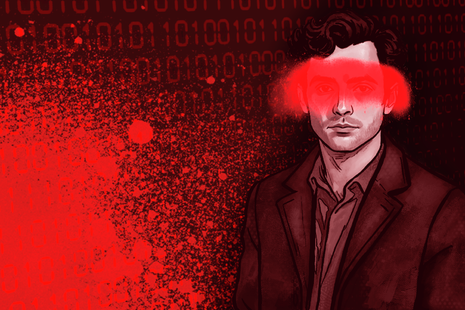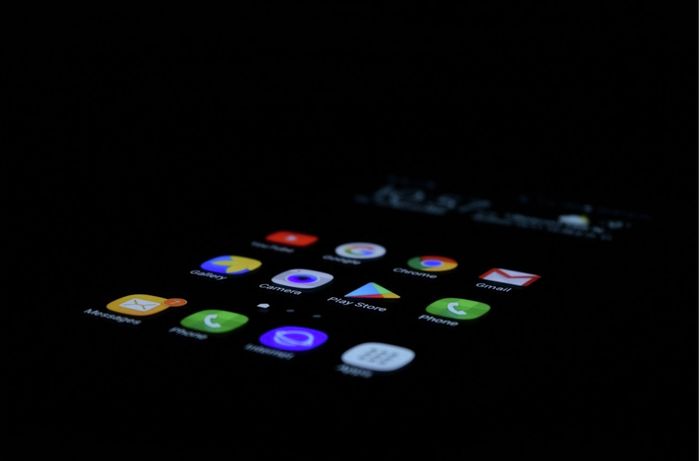Hello, You, it’s time to wake up
Hilary Lau reflects on the disappointing finale of Netflix’s You

With a brand-new season full of cliché twin tropes and TikTok takedowns, it’s safe to say You’s final act has lost quite a bit of steam compared to how it started. Debuting with the lowest Rotten Tomatoes score compared to the previous four seasons, The Guardian ventures as far as to slam it as “an insultingly rubbish ending”. Though it doesn’t qualify as stellar, its compelling edge still leaves no dull moment to doze off. And where better to start than with the most intriguing variable of every season, Joe’s latest love interest?
Meet Brontë. She’s snarky, impertinent, and thinks speaking in BookTok slang makes her quirky, a corporate stereotype of “those Gen Z kids” down to her cardboard bones. Her real name is Louise Flannery, a student of Beck and member of an online conspiracy theorist group trying to take down Joe. Their catfish scheme goes awry when Clayton (Dr Nicky’s son) is killed by Joe on livestream, and Louise finds herself falling for Joe’s wiles and even defending him amidst insidious allegations. She is at best annoying, at worst insufferable, paling in comparison to Love’s manic charisma, Kate’s cool intellect, or even Marianne’s gentle vulnerability. So it isn’t surprising that fans balk at the fact that she is the final girl; really, of all the women who have fought tooth and nail to vindicate their suffering, her?
"You is a timely wake-up call”
Despite this, I can’t help but feel like Louise is perfectly fitting to bring Joe to his demise. There is something perversely satisfying about Joe, harbouring a holier-than-thou ego, to be brought down by the juvenile ploys of an entirely average girl. Even his literary pride is scorned as he starts writing cheesy, glorified vampire smut, earning more than a few snickers when Nadia deadpans, “I’m embarrassed for you.” When young women are routinely denied their voice, and kept down by a judicial system where money talks louder than justice, Louise’s mediocrity provides an escapist fantasy that evokes images of the #MeToo movement in its prime, where men in power can be brought down with collective activism from the ground up. Yet choosing Louise in all her mediocre glory invites deeper introspection, which Marianne elucidates in one of the most moving moments of the series: “You know what bad looks like. You know better. It can’t be you.”
“We see fans swooning over Ted Bundy, Jeffrey Dahmer, Richard Ramirez: all Joes in their own right”
In the final scene, Joe dons a shaved head and prison uniform, boxed in by both prison bars and intense camera close-up to create a claustrophobic effect. Yet we can’t help but feel like this particular angle is suggestive, intimate even; as Joe is passed a letter from the guard, we get glimpses of the correspondence: ‘I believe you’, ‘punish me’, ‘I’d let you do anything’. Badgley’s iconic narration floats past in the background, a haunting autopsy: “Maybe we should fix what’s broken in us. Maybe the problem isn’t me. It’s you.” It’s easy at first to scoff and roll our eyes. Typical Joe Goldberg, refusing to admit to his faults even when his consequences have caught up to him, a stagnant pool of a man wilfully blind to his abusive ways. But as Badgley’s stare pierces past the fourth wall, we too are put on the spot when we realise a misguided Joe is right twice a day.
Just last year, ‘Deadpool killer’ Wade Wilson saw a surge in popularity on TikTok where fans made slow-motion edits of him complete with seductive music and glossy rose-tinted filters, ignoring the fact that he was standing trial for murdering two women in cold blood. Rewind to a few decades prior, and we see fans swooning over Ted Bundy, Jeffrey Dahmer, Richard Ramirez: all Joes in their own right – threats that extends beyond fiction. This is not an overnight problem, but one propagated by the internet, a bottomless abyss rife with misinformation, algorithmic biases, brewing vicious echo chambers in every crevice. We don’t want to see ourselves as Brontë, as a stupid teen indulging in the guilty pleasures of true crime, believing that we can rely on our rational faculties when push comes to shove. Paradoxically, it is this inability to admit to our vulnerability that makes us more vulnerable in the first place.
You is a timely wake-up call, with Season 5 moving away from the suburban dystopia of Madre Linda and vaulting opulence of the Lockwoods to bring us closer to reality. It’s definitely less classy than others like Adolescence (2025) in its storytelling, but a poignant nod in that direction nonetheless. After all, as Brontë says, the fantasy of a man like you is how we cope with the reality of a man like you. And maybe spotting the You locked behind our laptop screens is exactly what we need to spot the You lurking in reality.
 News / Cambridge academics sign open letter criticising research funding changes22 February 2026
News / Cambridge academics sign open letter criticising research funding changes22 February 2026 News / University Council rescinds University Centre membership20 February 2026
News / University Council rescinds University Centre membership20 February 2026 News / Supporters protest potential vet school closure22 February 2026
News / Supporters protest potential vet school closure22 February 2026 News / Hundreds of Cambridge academics demand vote on fate of vet course20 February 2026
News / Hundreds of Cambridge academics demand vote on fate of vet course20 February 2026 Comment / A tongue-in-cheek petition for gowned exams at Cambridge 21 February 2026
Comment / A tongue-in-cheek petition for gowned exams at Cambridge 21 February 2026








